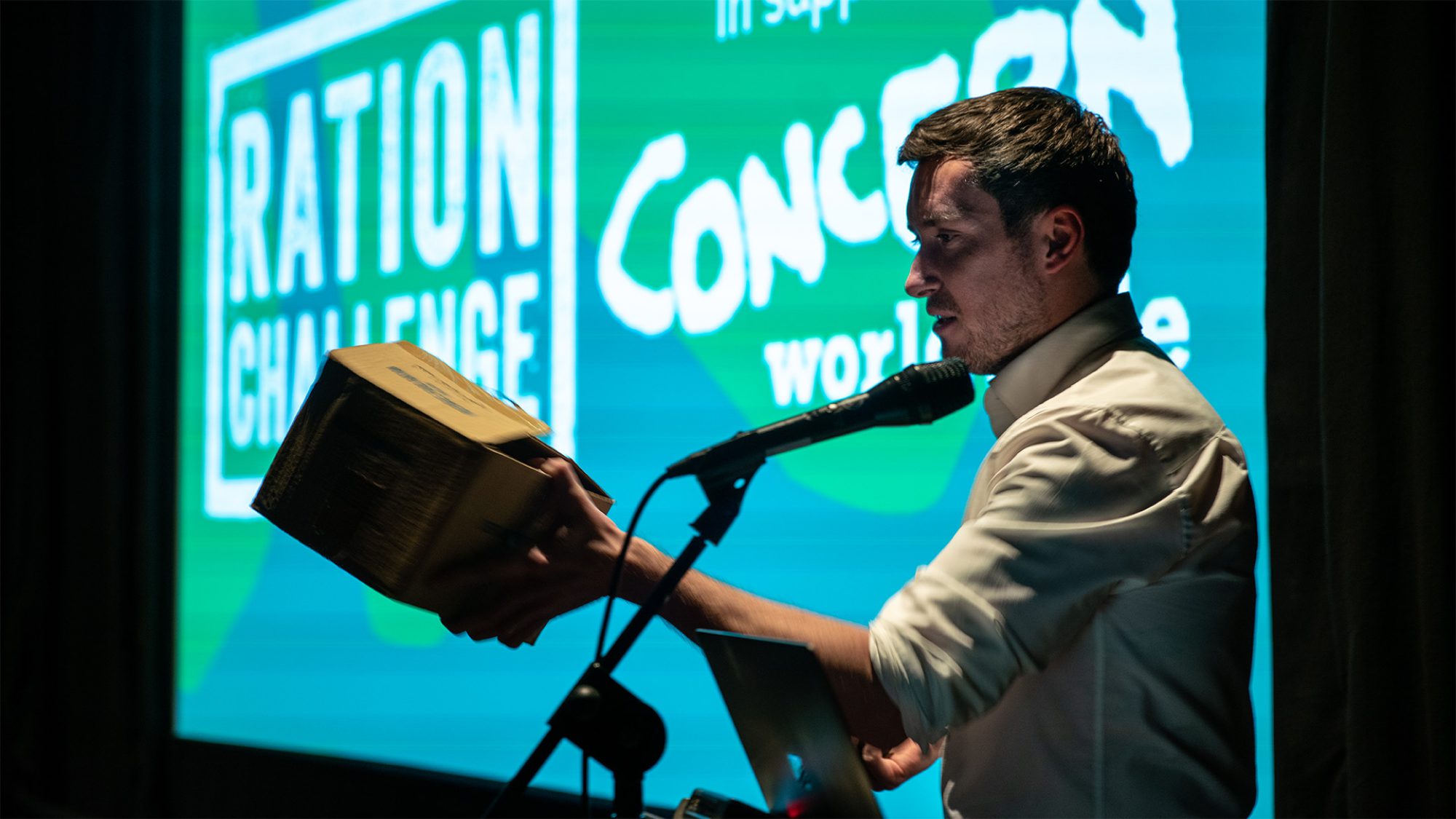

Matthew Allen, Community Fundraising Manager at Concern Worldwide UK, flew over from Belfast to give a brilliant talk at our latest Relay event, Mass Participation: Inspiration, Innovation, and Content, entitled the Ration Challenge: From the upside down to your town.
The Ration Challenge is an annual campaign that asks people to live off the same rations as a Syrian refugee would receive in Jordan. This year, Concern Worldwide UK launched the challenge in the UK, 5 years after its initial conception in 2014 in Australia.
The concept was simple: When a participant signed up, they received a box with the same amount of food that a Syrian refugee living in Jordan would live on in a week (minus a little flour and rice, which participants provided themselves).
The box could be held in one hand and really immediately drove home how little refugees really have.
The team wanted to build awareness amongst the public about the unbelievable difficulties that refugees face just trying to stay alive, and so they partnered with Raw London to produce a social experiment designed to kickstart the campaign, which you can watch below!
Concern Worldwide UK – Ration Challenge from Raw London on Vimeo.
Matthew and the team then created an automated map including the UK which was plugged into Concern’s fundraising system and updated to show the amount of donations in real time, allowing people to track how the campaign was doing. This drove some social proof about how the campaign was growing on a global scale.
The ask to the public was simply to sign up to get the box, with no obligatory donation. While this allowed the campaign to snowball, it meant that it did lead to wastage due to participants not converting to fundraising..
However the reason for this approach was due to careful testing in Australia in the years preceding, where they saw that receiving the box made the majority of people feel obligated to complete the full challenge, raising more funds across the board and outweighing the cost of the unused units.
The team created a CRM journey triggering out emails dependent on how much money a participant had raised. Their insight showed that people were much more likely to raise more money if they started fundraising in the first seven days, so they tried to encourage this behaviour. Participants were incentivised to fundraise by being given little extras to eat and drink once they reached certain donation goals.
To further increase donations, Concern organised a ‘match giving day’ where their major donors would match any donations made on that day. This worked really well, increasing the daily fundraising total by over 300%!
Concern Worldwide UK’s partnership with Act For Peace (the Australian creators of the campaign) came in useful, as they tapped into their testing insight from the last few years, and leant on their technical team for much-needed support.
Acquisition was mainly driven through paid ads on Facebook. The team used 24 different ad sets and a granular mix of different targeting, including lookalike audiences and various demographics. This worked well, with 41% of overall participants coming through lookalike audiences built from the Australian participants of the previous year’s challenge.
Previous attempts in the Australian market had demonstrated that traditional marketing probably wouldn’t have much cut-through, which led to the focus on paid digital and influencers. The team are using the learnings from this approach to re-evaluate their strategy for 2020 and target influencers with a greater connection to the cause.
The paid digital campaign allowed Matthew and the team to see that the 45+ audience had a higher cost per acquisition but donated a lot more, so they decided to spend more and upweight their targeting toward this demographic.
As sadly often happens with campaigns featuring refugees, trolls became an issue on social media. To combat this, Concern developed a robust set of FAQs that they could point them to without getting involved in a debate. The community also came out to help Concern by responding to negative comments themselves and trying to educate them.
Despite this small difficulty, the campaign had a massive impact, managing to raise over £850,000, and the team are keen to get involved again next year!